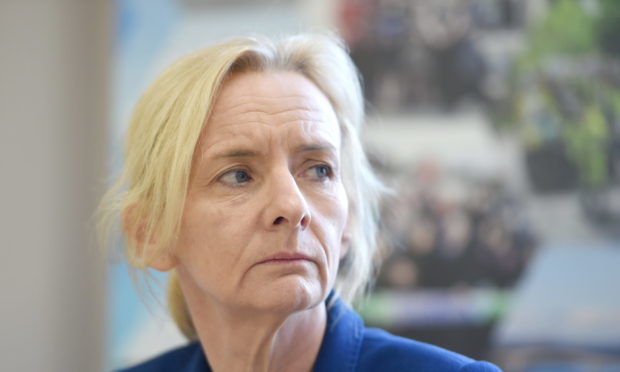Highland public service bosses gave sobering details of Covid-19’s rapid rise in the region and its severe impact on communities in a public online briefing to Highland councillors yesterday.
NHS Highland’s public health director Dr Tim Allison said the current positive testing rates indicate the level of infection in the community as a whole, and could be around 10-15%.
He said numbers had rocketed since Christmas due to socialising, and because the highly contagious new variant of the virus was present in the region.
He detailed the control measures being put in place, including greater availability of postal tests, bookable online, in line with the rest of mainland Scotland.
There is to be a new testing site in Wick, and Argyll & Bute is also to get two more test sites.
In Thurso a pilot scheme is underway to arrange for tests to be picked up from the local fire station.
NHS staff are now being tested twice weekly, Mr Allison said, as are care at home staff, and care home staff.
The Pfizer vaccination continues to be rolled out, while the Oxford Astra Zeneca vaccine has arrived in Highland, and will begin roll out for priority groups ‘at the back end of this week or early next week.’
GPs will be the primary providers of the vaccine for the general population, Mr Allison went on, building on the success of the mass flu vaccination programme.
Second doses will be administered at 12 weeks, he said.
Highland police boss Chief Superintendent Conrad Trickett said the ‘hidden harm’ from the pandemic was giving his force cause for concern, with domestic violence up in Inverness, crime up in housing estates , a 45% increase in drink driving offences and 60% increase in online fraud.
Mr Trickett said: “We’ve had to disperse more than 5,000 incidents, ranging from house parties to travel breaches.
“Of those we have arrested 32 individuals.
“We have issued 200 fixed penalty notices, 13 of those in relation to travel.”
Mr Trickett warned that ‘willful and flagrant’ disregard of the regulations, for example at house parties, will not result in fixed penalty notices, but individuals will be charged with culpable and reckless conduct, and reported to the procurator fiscal.
He said officers are patrolling roads, ferry ports and airports.
To combat increased crime on housing estates, officers have stepped up foot and cycle patrols.
He described an incident last weekend where 25 volunteers in the mountain rescue service were called out to rescue a group from outside the region who got into difficulty in the mountains.
“They were given fixed penalty notices for their behaviour.
“We try and courage personal responsibility and explain the regulations. Only at the end of that do we issue fixed penalties.”
Highland Council’s chief executive Donna Manson described significant rises in request for help in the face of hardship since Christmas.
“We received 394 welfare calls from December 28 to January 4, making crisis payments to purchase food, top-up electricity meters, to purchase fuel and for clothing.
“Various goods were supplied, including white goods, beds and other essential household items.
“Goods are supplied by local suppliers, supporting local employment.
“These suppliers also provide food parcels to those receiving goods which assists with our local distribution arrangements.
“Other households were seeking ongoing support including Universal Credit and council tax reduction as their household incomes have reduced and any savings they had are now depleted.”
The council has supplied free school meals and Covid hardship payments to 4,557 pupils.
Mrs Manson said: “There are real anxieties coming through about not being able to make ends meet, for the first time for many.
“Callers expressing notable declines in their mental health.”
She said supporting the NHS was the council’s first priority, stepping up its gritting service to mitigate against falls on the ice, and supporting the vaccination programme.
Meanwhile Lochaber councillor Andrew Baxter tabled an unopposed motion detailing a six point action plan for the council to take to tackle the latest crisis, describing the council administration’s response to it as ‘lacklustre’.
